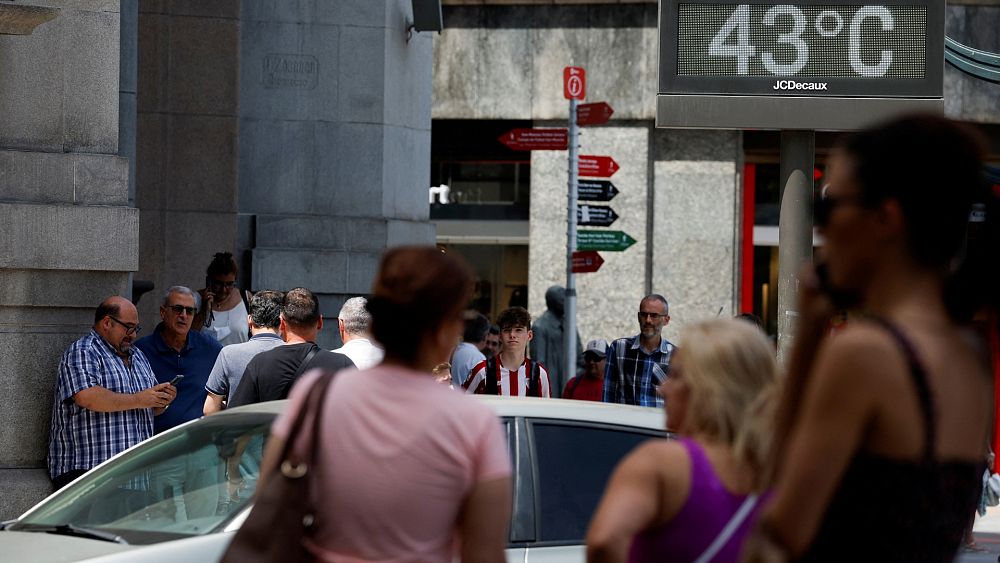
People with disabilities faced the risk of death, physical, social, and mental health distress due to extreme heat according to Human Rights Watch.
Human Rights Watch (HRW) is urging authorities to provide adequate support.
The research focused on Spain but can be applied to other nations in Europe, which scientists say is the fastest-warming continent on the planet, according to Jonas Bull assistant disability rights researcher at HRW.
What risks do people with disabilities face from extreme heat?
People with disabilities faced the risk of death, physical, social, and mental health distress due to extreme heat – particularly if “left to cope with dangerous temperatures on their own” the watchdog said in a report.
The report also said that a lack of representation in developing heatwave emergency plans meant the voices of people with disabilities were often not heard and their needs not included.
Some people with disabilities are more likely to have health conditions or use medication that can affect the body’s ability to respond to heat. Having to stay home due to the heat can also lead to social isolation, HRW said.
Bull told Reuters that inaccessible urban spaces exacerbated the problem. Several of the region’s large cities, like Seville and Córdoba, experience “heat island” effects which increase temperatures in urban areas.
How did Spain’s heatwave affect people with disabilities?
In Spain, one of the European nations that experienced record-breaking heatwaves last summer, the national plan to address the impacts of climate change lists actions to protect “vulnerable” populations.
But it does not propose any specific measures for people with disabilities, HRW said.
The organisation interviewed 33 people with disabilities in the Spanish region of Andalusia and all said “they felt neglected” during heatwaves.
Most reported that the 2022 heatwave had a “serious negative impact” on their physical health. Many also said that it had affected their mental health as being forced to stay home during the heat amplified loneliness and social isolation.
People with disabilities should be involved in developing climate plans
“With more intense and frequent heatwaves looming, authorities in Andalusia should learn from last year’s shortcomings and involve people with disabilities in developing an inclusive climate action and heatwave response plan,” Bull says.
He recently presented the report to authorities in Andalusia who said they were committed to prioritising the issue in the future.
Heatwaves led to some 16,000 excess deaths last year in Europe but some countries, including Spain, do not break down data to show how people with disabilities are affected.
HRW said data was crucial to be able to implement targeted measures, as was bringing people with disabilities to the table when putting together climate plans.